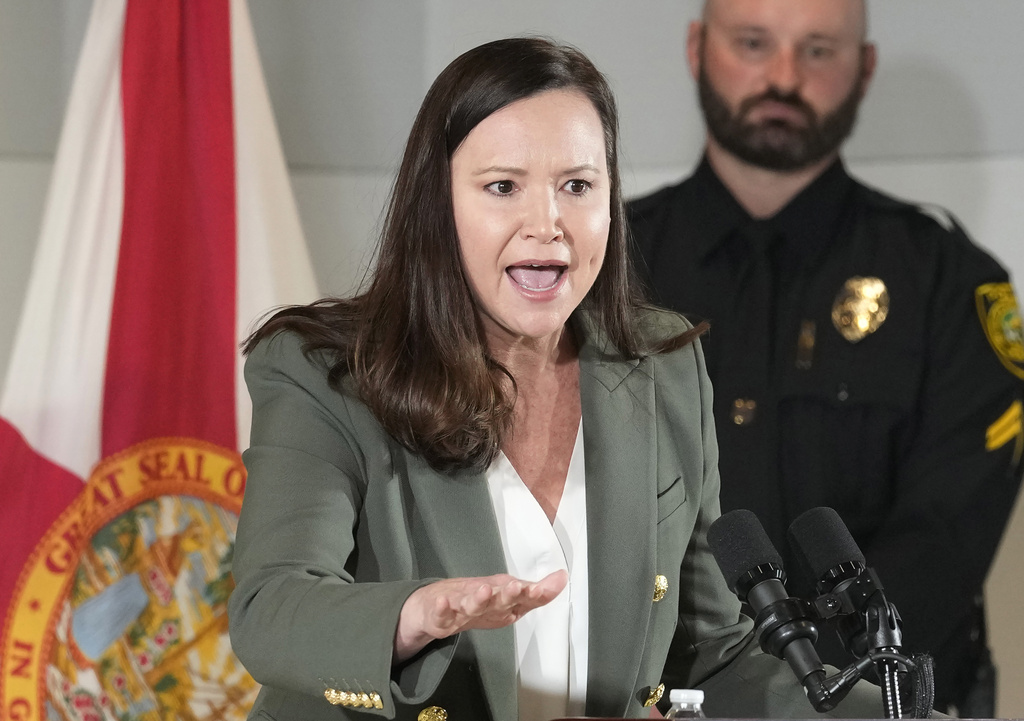That’s their goal in launching a new U.S. House caucus, the Friends of Judea and Samaria.
Launched Wednesday by Rep. Claudia Tenney (R-New York), the group will work to support the Israeli communities in what are historically known as the Judea, Samaria and the Jordan Valley.
In modern times they may be more recognized by their political designation, the West Bank. It’s the area within Israel that proponents of a “two-state solution” to years of conflict between the Palestinians and Israelis would give to Palestinians.

The two-state solution, were it to come to pass, would cede land in the heart of Israel to people who have fought to wipe the country off the map. From the river to the sea would gain a large foothold.
Could the new caucus reshape the conversation in the Middle East?
“That’s exactly the tact,” Rep. Randy Weber (R-Texas) said on Washington Watch Thursday.
“Our country was founded on Judeo-Christian values, not West Bank values. The two-state solution, in my opinion, is dead on arrival,” he told show host Tony Perkins.

The two-state solution would also leave a divided Jerusalem and territory sacred in Christian history under Muslim control. That would include places like Jericho, Bethlehem and Hebron.
“We need to make sure that biblical Judea, biblical Samaria absolutely stays in control of the Israelis, of the Jewish people. That is their homeland,” Weber said.
Weber has a pro-Israel history on Capitol Hill. He co-sponsored the Recognizing Judea and Samaria Act last year in the 118th Congress and serves as co-chair for the House Bipartisan Task Force for Combating Anti-Semitism.
Who’s on the team?
Rep. Mike Lawler (R-New York) was a speaker at Wednesday’s caucus kickoff event.
Non-U.S. House members who will serve in the caucus include Perkins, the Family Research Council president; Yossi Dagan, the head of the Samaria Regional Council; and Ohad Tal, a member of the Israeli Knesset who attended the launch.
As it advocates for Israeli sovereignty over the lands it also seeks to deep the connections between the individual regions.
In a broader sense it will aim to strength ties between the U.S. and Israel, ties that though historic, have been stressed during outgoing President Joe Biden’s heavy-handed influence in Israel’s war with Hamas.
 The two-state solution “is exactly what it seems like the current administration is intent on doing,” Weber said.
The two-state solution “is exactly what it seems like the current administration is intent on doing,” Weber said.
Twenty-seven “extremists and entities” were sanctioned by Biden in a February Executive Order related to maintaining stability in the “West Bank.” The sanctions targeted individuals and groups for what the administration said were hateful and destabilizing acts.
One of the caucus’ first initiatives will be to reintroduce Weber’s Recognizing Judea and Samaria Act.
It would compel the federal government to use the words Judea and Samaria and not “West Bank” in matters dealing with the region.
“It sounds simple, but it’s profound because that terminology – West Bank – has created more division in conflict in the Middle East than anything else,” Perkins said.
“You and I have been there, and we both know what’s at stake. We’ve seen it firsthand,” Weber said.
Incoming President Donald Trump has shifted away from a two-state solution over time.
“There was a time when I thought two states could work. Now I think two states is going to be very, very tough,” Trump said in an interview with Time Magazine last May.
Burying talk of two-state solution
But a four-year swing in policy on this important issue is not what Israel needs. The caucus represents an opportunity to end talk of a two-state solution regardless of what party controls the White House in the U.S., Perkins said.
“We’ve had this ping pong match … four years of conservative, four years of liberal. This could come back, but this is an opportunity to bury that idea. After Oct. 7 … that was a two-state solution. It’s a failure, and we need to move on.”
With Gaza in place, a Palestinian state in the Judea-Samaria region would mean Israel would have enemies on both sides within its own country, Weber said.
“We cannot allow that to happen. I want the United States to be extremely up front in making sure we’re on Israel’s side in this one,” he said.







